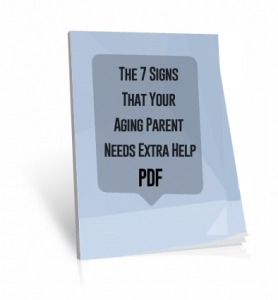Understanding When The Time is Right for Homecare
It’s hard to acknowledge that our parents aren’t as independent as they once were. Here are 7 signs that your aging parent might need some extra help at home.
Changes in Personal Hygiene: Personal hygiene is a big part of independence, but for many elderly people, properly bathing or showering is a challenge. Pay attention to any unusual smells, the state of their clothing, and signs that the bathtub or shower hasn’t been used in a while. Similarly, dirty, overworn clothing is a sign that they aren’t doing their laundry.
Unpaid Bills: Piles of unpaid bills and late payment notices indicate that your parents aren’t managing their finances. Pay extra attention if they’ve had their electricity or water cut off due to non-payment or if collectors call their home regularly.
Increased Clutter and Grime in the Home: Everyone has a normal amount of clutter for their particular living space. But when your parent’s home becomes noticeably messier and dirtier than usual, it’s a sign that they’re no longer performing household chores. This may be due to declining vision and mobility; it can also be an indicator of increased memory loss.
Memory Problems: Everyone experiences a normal lapse in memory now and then. But when you notice your parent repeating themselves, regularly misplacing their keys or phone, or struggling to recall basic information, it may be time to seek extra care for them.
Unexplained Bruising or Injury: Aging brings a natural decrease in mobility and dexterity. But if you notice your parent has increased, unexplained bruising, cuts or other injuries, it’s a sign that they might have fallen or are having serious trouble getting around.
Lack of Fresh, Healthy Food in the Fridge: Nutrition is highly important as a person ages, but many elderly people find it difficult or impossible to get to the store, replenish their groceries and prepare the meals they need to stay healthy. Check for rotting or spoiled food piling up in the fridge, as well as an increased reliance on pre-packaged or frozen meals.
Decrease in Social Activity: Does your parent seem to have lost interest in cherished friendships or social activities? Check to see if they’re staying socially active: are they still attending their book club, visiting the Y for their aerobics class or meeting their friends for coffee on weekdays? Social isolation or lack of interest could be signs of serious cognitive or physical issues with your aging parent.
Contact us today to learn how we can assist your aging loved ones.

Get your free downloadable checklist here.